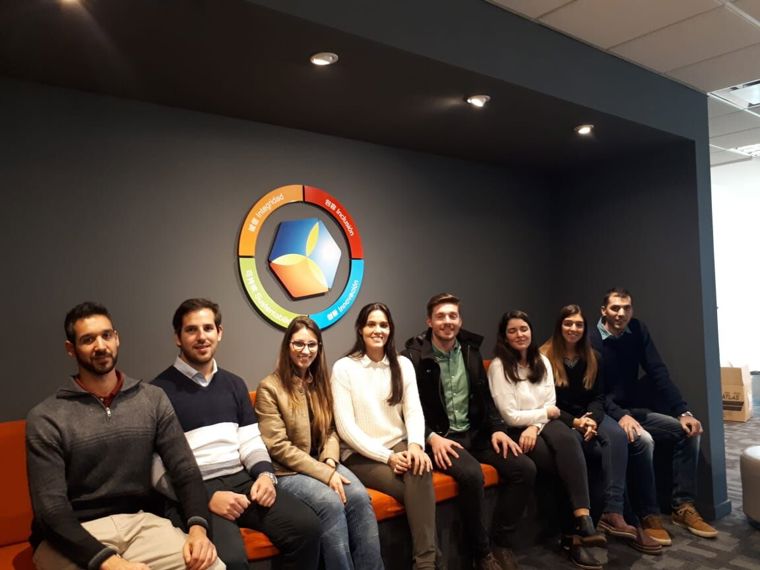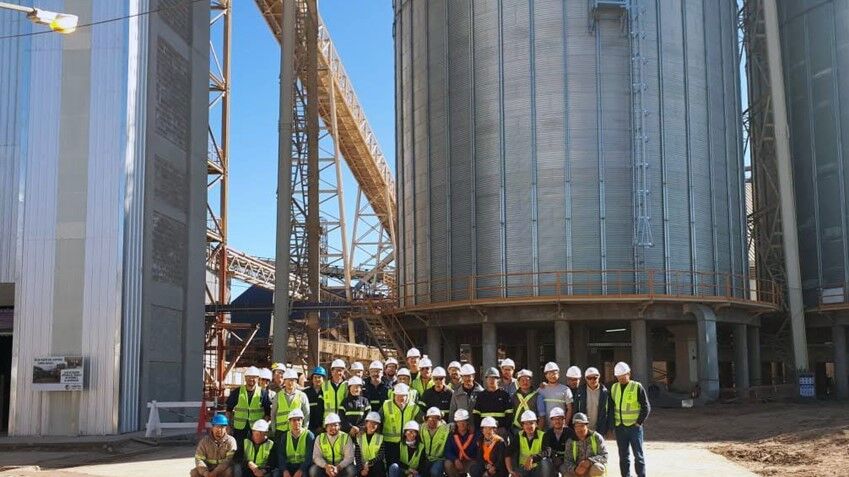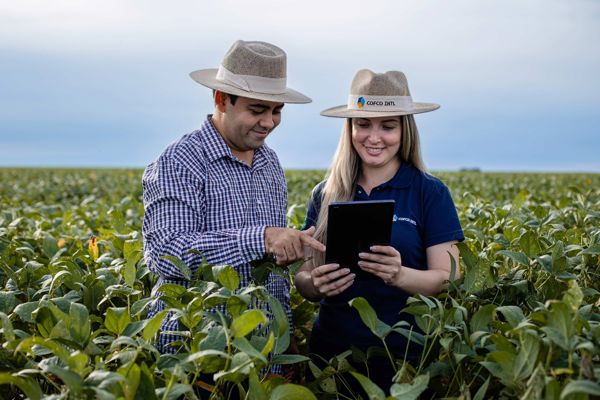
From young trainee to tech guru: Julián tells us how to make your career a professional dream
A career in agricultural commodities may not be the most obvious choice for young people interested in tech and innovation. But rapidly evolving market conditions, new consumer trends, and booming demand for sustainable solutions make the industry increasingly appealing to digital natives too.
Julián Dabove is one such digital native. An electronics engineer at COFCO International in Argentina, he entered the company through the Young Professional Programme in 2018. And this year, he collaborated with his IT and commercial colleagues to develop an app that makes it easier for its suppliers and to sell grains and oilseeds to COFCO.

Argentinian suppliers can download the new app to their mobiles or computers, allowing them to check the available offers from COFCO International in real time. Instead of agreeing a deal in person, or even over the phone, they can use their phone at any time and from any location, accepting the offer or negotiating a different price for their grains or oilseeds.
“It makes the client relationship with COFCO very dynamic, flexible and fast,” says Julián. “It saves a lot of time.”
Julián says the app can never replace personal relationships, but it does allow COFCO and its suppliers to spend less time negotiating prices and more time building those relationships.
“Technology can take care of the rest,” he says.
Born in San Lorenzo in Argentina, some 30 km from Rosario, Julián says commodities have always been a part of his life.
“Rosario is a major commodities centre and - even if you are not directly involved - your life is connected one way or another,” he says. “This area lives off commodities.”
Rosario native too
After growing up in Rosario, Julián studied for an MSc. in microelectronics in France. He then returned to his native Argentina, where he started an MBA in 2018 and joined COFCO International by entering the company's Young Professionals Programme.
“I came to COFCO because I was interested in the Young Professionals Programme,” he says. “Some friends told me about the atmosphere, the people. They said it was a great company to work for.”

His training began by spending a month each with different teams at the COFCO terminal in Puerto General San Martin, a small city on the western shore of the Paraná river some 30km from Rosario.
During his time with the teams - from general maintenance to quality control – and in a subsequent role as a project leader managing projects, contractors and money, Julián learned how everything fits together. He had to think of ways to make the business more effective.
“I was working and learning at the same time,” he says. “I had to take notes, find ways to improve the process”.
About a year ago, Julián switched to the commercial team, where he works with origination - following the market, securing grains and oilseeds stocks. His MBA had given him a good feel for this side of the business, and he was thrilled by the change. This move also gave Julián an opportunity to apply his knowledge of technology to best effect.
“I wanted to improve the business, not just the individual plants.”
Julián recalls the origination team discussing ways to work together more efficiently, and they all agreed that technology was key to this. In Julián's words, they concluded that - for the business to succeed - 'technology should be an ally'.
With this shared vision, the commercial and IT teams collaborated to find new efficiencies.

“The first thing we did was to digitalise the request for quotas,” Julián says, describing the process by which they moved quota requests from email and WhatsApp to a dedicated online portal.
“The WhatsApp was working fine, but the online portal took us to scale,” says Julián.
Then the ongoing COVID-19 pandemic brought fresh impetus to the digitalisation.
“When the pandemic came, we said: 'Why not do a similar thing with our markets?'”
“So we digitalised our supplier transactions and produced an app.”

Julián is proud that COFCO can offer such an app to its suppliers. And more is yet to come.
“Step by step, technology is improving business and making it more sustainable,” says Julián.
Technology is unlocking all these possibilities to increase traceability and help to use resources much more efficiently.
“We now have more information than ever before, so we are learning to collect it, analyze it, and use it too,” says Julián.
Julián says his generation wants to use their jobs as vehicle to improve the state of the world, and that includes agricultural commodities business.
“Agriculture in all its variants is the engine of the world, and the current situation invites us to rethink the paradigm in which we live,” he says.
“I am super excited to be part of it.”
